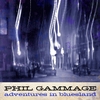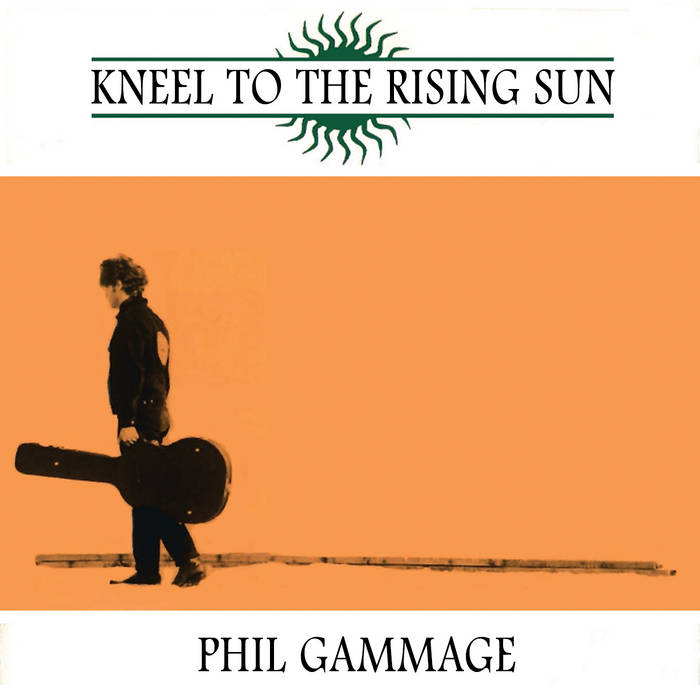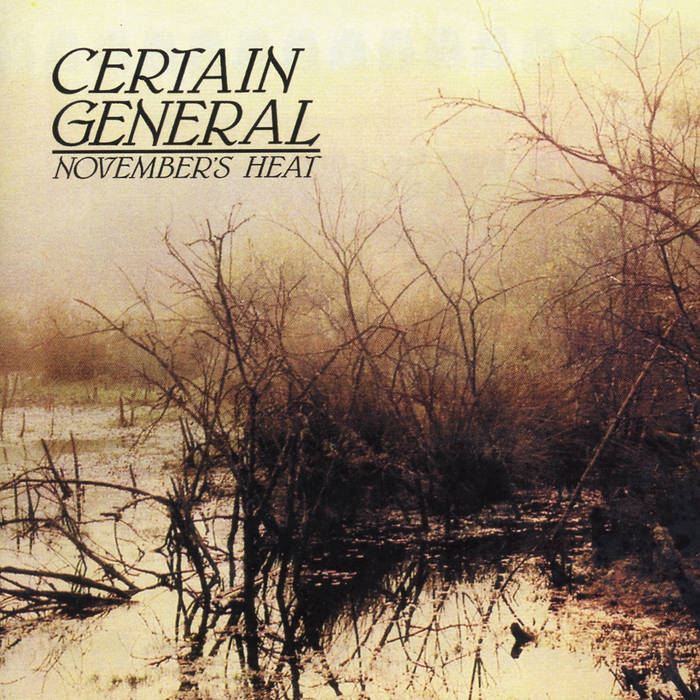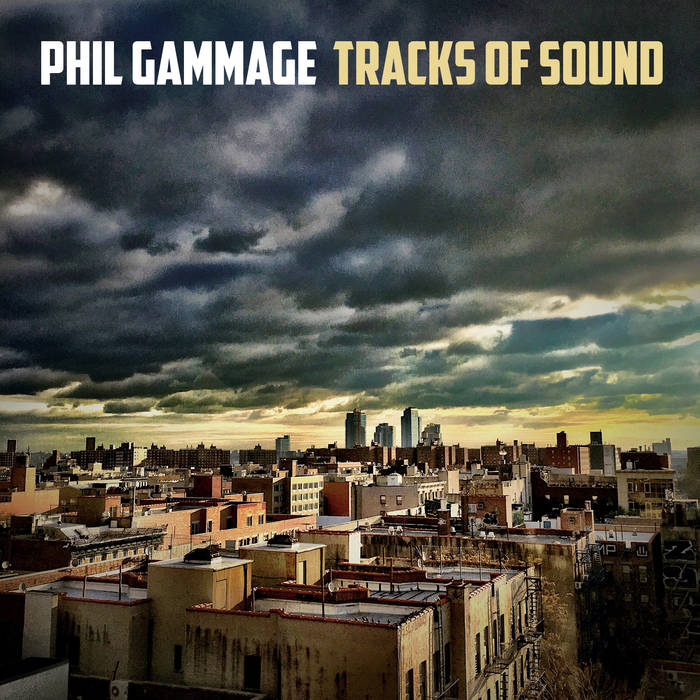
|
|
|
|
|
Phil Gammage "Adventures in Bluesland" Phil Gammage "Kneel to the Rising Sun" 20th Anniversary Edition originally released on New Rose (France) The Scarlet Dukes "Rogue Escapade" Jump blues/swing  Certain General "November's Heat" 1985's classic NYC post-punk LP Phil Gammage "Tracks of Sound" Edgy downtown jazz |
| INTERVIEW: DALTON RASMUSSEN AND JOSEPH POPE — THE MEN BEHIND THE Rocky Mountain Low COMPILATION ALBUM By Icepick Phil 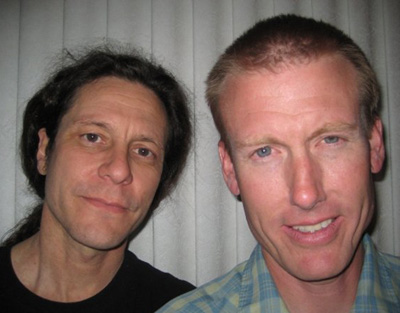 Editor's note: In 1999 two Colorado music historians (one a musician) began working together on making a vision they shared become reality — the creation of the ultimate audio document of the Colorado early punk rock scene. In 2009 after ten years of hard work their vision became the essential compilation album Rocky Mountain Low. Editor's note: In 1999 two Colorado music historians (one a musician) began working together on making a vision they shared become reality — the creation of the ultimate audio document of the Colorado early punk rock scene. In 2009 after ten years of hard work their vision became the essential compilation album Rocky Mountain Low.Their album continues to get great critical reviews and enjoy respectible sales. While the 2008 compilation album Local Anesthetic focuses more on early 80s Denver, Rocky Mountain Low is entirely devoted to the music of the late 70s which defines the birth of the Colorado Punk Rock and New Wave scenes. Some may disagree with many of their subjective opinions and historical interpretations but no one can dispute that RML is undeniably the most complete and comprehensive document of late 70s punk/new wave music in Colorado. As the definitive written (it's accompanying booklet) and audio (CD or vinyl) statement it stands alone by itself and there is nothing else even close. It's creation was a massively monumental achievment that was a true labor of love. We were able to speak to Dalton and Joseph about their process of putting together such a hugely ambitious project, their feelings about the album a couple of years after it's release, and Joseph's involvement in the late 70s Boulder scene as a musician and as a roadie. A big thanks to both of them from Colorado New Wave/Punk Rock for taking the time to talk to us. (pictured above: Joseph Pope and Dalton Rasmussen in 2009) Dalton and Joseph - Please describe the birth of the idea that became Rocky Mountain Low and how did it come about that the two of you worked together on the project? What inspired you two to take on something so ambitious? Dalton: Curiousity was my main driver. For a long time, the only thing I knew about the late 70s Colo punk scene was the Ravers EP which I picked up at Trade-A-Tape records in Boulder while I was attending CU. This would have been 1986-7 around the time I started collecting punk records in earnest. In 1995 I found a couple used copies of the Defex 45 at Wax Trax for a buck each and contacted the band. After speaking with two of them, I learned of this entire scene that had existed in the late 70s, and virtually none of these bands released records. That's how music survives, y'know? Bands that never released records are, for the most part, forgotten to history, and the bands that are known to future generations are those (good or bad) who released records. So I was intrigued by all these bands that never released records and I was hoping that maybe a few of them had cassettes tucked away so I could hear what they sounded like. I'm not sure when it went from gathering music to creating a compilation, but it wasn't all that long before Joseph and I first got in touch in 1999. Over a very short period we had several long phone calls and exchanged numerous emails. I learned that he'd been thinking about doing a compilation of Colorado bands for years, and we quickly agreed on a few things. We decided to work on the compilation together, the comp would only cover bands that were playing in the late 1970s, and we would include every band that had been part of the late 1970s scene in Colorado. He was adamant about this last point. It was important not only from an egalitarian standpoint, but in order for the compilation to be a meaningful (i.e. accurate) documentation of the 70s punk scene, every band had to be included. Our concept was 'do it right the first time' so that it stands as "the" document on Colorado's late 70s underground music scene. From the outset I think we both realized it was going to take significant time and effort, but we reasoned that if the music could lie dormant for 20 years, what's a little more time? I don't think at that point we even fathomed that it would take us 10 years to finally get it out, but, y'know, life comes first... Joseph: I'd wanted to document the Colorado scene for years, but it took crossing paths with Dalton to actually get me motivated to follow through with the idea. He had been thinking of documenting it as well, and his interest in it was a great motivator for me. Besides, we (luckily) got along as people, otherwise I don't think it would have been possible. Another huge part of it was the fact that our intentions were basically the same: creating an accurate historical document without distortion caused by time or personal tastes, or whatever. We looked at it from the point of view that a historian would approach any research project. We're both heavily into music from the period and know a lot about various scenes and how they may or may not have been documented. A lot of how this history is presented is either in an edited form insomuch as presenting only the "Punk" bands, or much worse, there tends to be a lot of what we jokingly refer to as "cheerleading" going on: basically presenting everything through personalized, rose-colored glasses. As someone who was a participant as well as having the aforementioned knowledge, I saw an almost unique opportunity with the Colorado scene. The fact that it was so small presented a chance to document the entire scene. No one had ever done, or even tried to do this to the best of our knowledge. We felt it was absolutely imperative that we have a written and visual history along with recordings if the compilation was to truly add anything to the "historical record". It would have been way easier to simply release the recordings without the accompanying history (just finding the recordings was no small task), but to do so would have been a half measure in our minds. While the recordings can certainly be appreciated on their own, our intention was that people absorb all the information together to appreciate the full scope of the document. Even for people who know a lot about music of the era, what happened in Colorado was pretty much a complete mystery. It was a very active, fertile and varied scene considering its size, and beyond the historical aspect we knew a lot of people would find bands they liked that they'd never heard of. We both have a bit of an obsessive side to our personalities, and that certainly paid off in this regard. I think the result speaks for itself. A number of reviews and people who we respect for their knowledge picked up on all this. Basically, people were very impressed not just with the amount of research that obviously went into it, but that we presented what I think one person called an "unvarnished" view of it all. Like Dalton said, we think it'll stand the test of time as the document of what happened in Colorado. Besides, who else would be stupid enough to spend years of their lives with such an undertaking? (for Dalton) Before you began working on the RML project, what was your initial interest in Colorado punk rock music from the late 70s and early 80s? Dalton: Prior to punk I was in love with 60s rocknroll — Beatles, Who, Rolling Stones, Beach Boys, mainstream stuff — and I never really liked contemporary rock all that much. When my family moved from Lawrence, Kansas to Westminster in the summer of 1974, the closest record store was the Peaches at the Boulder Turnpike and Federal Blvd — almost walking distance from our house. I *loved* going to that record store and I remember that there was a seemingly endless array of 60s rock that was still available. Punk didn't really happen for me until 10th grade in high school when I was living in the mountains west of Denver. I'd done a pretty good job of painting myself into a corner... too freaky for the jocks, too geeky for the freaks, hated preppies, introverted, listened to music from the past... Punk (hardcore, I suppose) resonated with me like nothing else and provided an identity that I felt completely set me apart from everyone else. And even though I was still at the bottom of the food chain, so to speak, I was much happier and finally could care less about what others thought of me. I liked the speed, aggression, the lyrics, everything about it. How did your Colorado punk rock band poster gallery website Trash is Truth develop? Dalton: I like the flyer as a form of communication. Most people probably did what I did — you'd go to a record store like Wax Trax and you'd pick up one or a few flyers lying on the counter and drop them in your bag of records on your way out. Or maybe you'd see one stapled to a lamp post or taped to a wall and carefully tear it down. After years of doing this, they stacked up and I was too emotionally attached to them to throw them out. I had a number of friends who were like-minded packrats and they had stacks of flyers in boxes. I'd been scanning them for a while when I decided that I had critical mass for a website. (for Joseph) Were you a high school student (in Boulder) when you became a roadie for the Ravers in 1977 and what was your connection to Boulder's Trade-a-Tape Records store and The Ravers' manager Rick Stott? Joseph: It was actually 1976 and I think I may have been 15 when I started hauling equipment for the Ravers, so is that junior high or high school? Initially there really wasn't much "hauling" going on. As both myself and Sam Turner (Healers and long time Trade-A-Tape employee) remember it, there was a lot of time spent watching them rehearse and waiting for them to get gigs. As '76 wore on that all began to change. We think Rick Stott "hired" us as "roadies" so he could get free labor out of us — we'd do the late night inventory while he sat behind the counter and read! (HA!) I think being a roadie was really just an extension of the fact we hung out in Trade-A-Tape already so it just seemed natural. There were a groups of friends — Sam, myself, John Greenway (Healers) and Eric Boucher (later Jello Biafra) who were really into music and went to the store all the time. It started when Trade-A-Tape was still on Arapahoe near Boulder High. Rick must have found it odd there were such young kids so into music, especially music that most others weren't into. To his credit he not just tolerated, but encouraged, our interests. My roadie-ing days ended when the Ravers moved to New York in the summer of '77. Sam & I were both supposed to go but at the last minute Rick told me "You're 16 years old. You'll be too much trouble trying to get into the clubs" and put the kebash on my trip — my teenage Rock n Roll dreams crushed! (I'd actually just turned 17) I lived for much of the music that was emanating from NYC so as you can imagine I took it pretty poorly. Sam went as the sole roadie and had some great (mis)adventures. When Rick came back to Boulder and was working with the Nightflames, Sam, John & I did some roadie-ing for them as well. To this day I remain friends with all these guys. Were you an avid record collector back then? I shy away from the term "record collector" because there are a lot of negative connotations with that term in my mind, but yeah, I already had a fair number of records at that point. I really just loved music. I was the youngest of a large family and was exposed to many genres from a very early age. I was lucky enough to grow up in the 60s when there was actually really good music that was enormously popular. I was also very curious and discovered lots of things by listening to my sibling's records — stacks of 45's that stretched back into 50s Rock n Roll and R&B or whatever. The period from roughly '74 to '79 before I moved from Boulder was a true period of discovery for me, I think in part because I was entering teenagedom. Not only was there fantastic new music coming out, but in those days you could still find all kinds of great stuff cheap in the used bins. T-A-T also had a free bin that seemed to always yield interesting things. I was into everything from Reggae, 60s Rock & Pop, Country and pretty much everything in-between. When Punk hit of course, the "collecting" definitely went up as well — all those great, obscure 45s to track down! I would write to bands & labels both in the U.S. and abroad in my pursuit of stuff. It was all really just born out of a curiosity and interest in music. How did being a roadie for The Ravers and your interest in music evolve into you becoming a musician? I had dabbled with playing music for a long time before the Instants formed, but nothing ever seriously. I took piano lessons as a child but idolized the Beatles and Hendrix (among others) when they were still around. I begged my mom for guitar lessons and for Xmas of '69 or '70 she gave them to me — on acoustic. Being a snotty little brat I refused to take them because they weren't electric! Probably the biggest single mistake I ever made in my life, kids. My brother Jon (also in the Instants) started playing guitar sometime around then and one of the first songs we ever played together was "King Of The Road" by Roger Miller. I always wanted to be in a band but for whatever reason it took Punk Rock to kick me in the pants to actually do it (like many others). I tried to get bands together in '77 but it was difficult to find anybody into the same stuff in Boulder, much less other high school kids. By my estimation they would all want to play wanky Rock stuff that I had no interest in. In mid/late '78 the Instants finally coalesced. What did the local punk scene at that time mean to you personally? The Punk explosion and having a band meant everything to me. I thought Punk Rock was the salvation of Rock n Roll and that my band was some small part of that. We were terrible, but terribly serious about it! (HA!) In '76/'77 it was basically the Ravers and the Front, a Punk cover band from Denver. It took awhile, but momentum picked up and as I'd mentioned previously, a pretty darn healthy scene took hold, all things considered. Nothing against my Denver pals, but as far as actual bands went, Denver was definitely second to Boulder. This is supported by the fact that while Denver had roughly a million people (Boulder about 70,000), Boulder produced more than twice as many bands, all the vinyl from the era, and the earliest and most musically diverse groups. Though I was always envious of what was happening in other places, I felt fortunate that given I was stuck in Boulder as a high school student longing to be elsewhere, at least something was happening. Very shortly after high school the band moved to England and I never looked back — I finally got out! 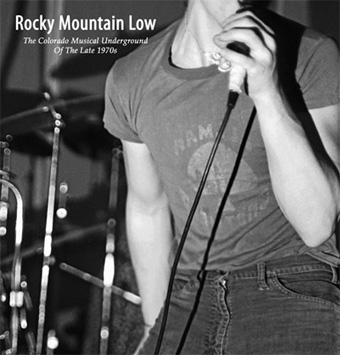 What went into deciding which artists to feature on the album? Did you have any misadventures in trying to contact any of the musicians from that era? What went into deciding which artists to feature on the album? Did you have any misadventures in trying to contact any of the musicians from that era?Dalton: From the very beginning of our collaboration, the idea was to include all bands. We both had opinions about which bands we liked and didn't like and tried to set those convictions aside so we could approach this from a purely academic and unbiased point of view. Our goal was to completely document the scene and let the listeners decide what they did or did not like. Misadventures? Not really. It took us a VERY LONG TIME to track down recordings and some of them (i.e. Lilly Rose, Radio Pete and Nightflames) were entirely fortuitous, arriving when we were trying to put the finishing touches on everything. We both wish that the Violators would have allowed us to use the track that they mixed from the master tape for us, but their exclusion was ultimately their call. It all boiled down to a very silly disagreement about the singer's nom de guerre when he was in the Violators. Joseph: I think this is pretty much covered but I'd second the notion that we were both terribly disappointed that the Violators chose not to participate (especially since we put a lot of work into trying to be sure they were included). Ultimately it's the fan that picks up the record that suffers, which is really too bad. Why did you decide to release RML in vinyl format as well as CD? Dalton: Vinyl still sells — especially with music like this. Given that I'm a record hoarder, vinyl was the obvious choice. The CD was included for those who were interested in hearing the project, but didn't have a turntable. Joseph: People who buy something like this are more apt to be vinyl lovers, and given the time period the compilation covers, we both agreed it was totally appropriate. If we're so lucky as to have to repress I doubt it will be a 2xLP. It was damned expensive and we're not selling enough at this point to justify it. Any regrets about the finished product? Did anything about it feel "unfinished" or are the both of you content with the way it came out? Dalton: Absolutely zero regrets — I am probably more proud of this than any of my academic or professional achievements. I think it turned out great and nothing to me says 'unfinished'. No one has ever documented a local punk scene as completely as we did, or with as much detail as we put into it. Joseph: No regrets whatsoever. Of course, one could write a book about the subject if they really wanted to, but being as objective as I possibly can be, I don't think Rocky Mountain Low can really be improved upon. |
